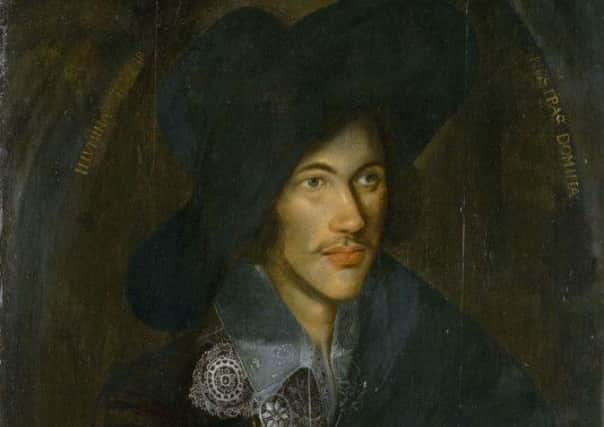St Andrews University buys 3 literary ‘treasures’


The books, a rare 1635 second edition of John Donne’s “Poems”, a 1634 edition of Sir Thomas Malory’s Le Morte d’Arthur, and a first edition of “The Temple” by the Welsh metaphysical poet George Herbert, published in 1633, have been added to the special collections of St Andrews University.
Donne is now one of Britain’s most often quoted poets - his lines “No Man is An Island” and “Never send to know for whom the bell tolls, it tolls for thee” are famous.
Advertisement
Hide AdHemmingway adapted the latter for the title of what is arguably his most famous novel, and the former features, among many other places, in the 2002 film adaptation of Nick Hornby’s novel About a Boy, starring Hugh Grant and Nicholas Hoult.
Donne’s verse was not widely known during his lifetime.
But in the decades immediately following his death in 1631, its fame blossomed.
The first edition of his Poems in 1633 made them available to a wide readership, with the poems intended mainly for private reading and contemplation.
The Donne second edition, now acquired by St Andrews, includes 17 original poems not included in the first edition published a year earlier, and a frontispiece portrait of Donne himself at the age of 18.
The printer’s address to the reader emphasized that already it was taken for granted by “the best judgements” that Donne’s poetry was 2the best in this kinde, that ever this Kingdome hath yet seene”.
The Malory book, full title “The most ancient and famous history of the renowned prince Arthur King of Britaine [Morte d’Arthur]” was produced by a London printer, Williams Stansby, based on the earlier editions by Wynken de Worde and William Caxton.
Advertisement
Hide AdThe book appeared just before the outbreak of the English Civil War. It remained the only available edition for nearly two hundred years until the revival of interest in Arthurian literature in the nineteenth century.
Herbert sent the manuscript of The Temple to the English scholar Nicholas Ferrar from his deathbed, asking him to publish the poems only if he thought they might do good to “any dejected poor soul”. They met with enormous popular acclaim.
Advertisement
Hide AdThe books join St Andrews University’s collection of rare books, already said to be “wonderfully strong” and built up not least because the Fife seat of learning enjoyed copyright deposit status for most of the eighteenth century.
That meant it was entitled to a copy of every book published in Britain.
Professor Andrew Murphy of the university’s School of English said: “While our earlier holdings are very good, it is absolutely fantastic that we have committed ourselves to a programme of building on our existing strengths.
“These new additions are absolute treasures for the University to possess and they will be invaluable aids for teaching and scholarship.
“At St Andrews, these books are not locked away, never to be seen again - they will be an active part of our scholarly resources.”
The university’s Head of Special Collections, Gabriel Sewell, added, “The books are of real significance to Special Collections, and strengthen our existing 17th century holdings. We are thrilled to have been able to acquire these items and look forward to making them available for research by a wide range of users both within and outwith St Andrews, including present and future researchers in a number of Schools.
Advertisement
Hide Ad“We are extremely grateful to the support of the Carnegie Corporation of New York whose generosity has made it possible for us to acquire these books.”
FOLLOW US
SCOTSMAN TABLET AND MOBILE APPS